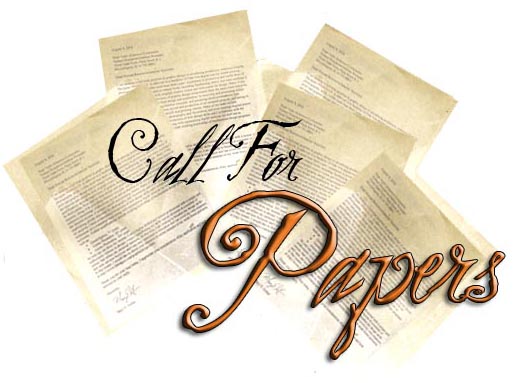|
News & Events |

|
|
IRSS Citation Report |
|
|
All |
Since 2025 |
|
Citation |
919 |
70 |
|
h-index |
15 |
01 |
|
i10-index |
22 |
01 |
|
|
Hit Counter |
|
|
|
Academy Publication
Ethics |

|
|
Academy of IRMBR
Volume 7, March, 2019
Move your mouse curser on the title to view the abstract of the paper
|
S.No. |
Title |
Authors |
Pages |
Download
|
| 1 |
Need of Professional Development of Teachers of Province Sindh, Pakistan
Professional development of teachers plays leading role for uplifting their professional competency, as it helps them to update their subject matter knowledge according to the needs of present era. The objectives of the study were to access the need of professional development of teachers and to find out problems of professional development of teachers with a view to suggest suitable recommendations for improving professional development of teachers. The study was descriptive type in nature, so mixed method (quantitative & qualitative) was adopted. The sample of the study was selected through both random sampling and convenience sampling techniques and consisted of 1522 respondents. Questionnaires and interviews were used as research tools for collection of required information. It was found that professional development has positive impact on improving their professional competency of teachers. It was also found teacher training institutions of the Sindh province were facing shortage of funds, lack of competent teaching staff, lack of advance ICT training, instructional and physical facilities. Furthermore, these institutions were also facing actuate shortage of infrastructure problems. It is recommended that maximum funds may be allocated to overcome the financial and other allied problems. Qualified competent staff may hire on permanent basis for updated instructional delivery of subject matter knowledge to trainees. Infrastructure problems are solved on priority basis for further uplifting of professional development of teachers at elementary level in Pakistan with reference to Sindh province. Keywords: Teacher Education, In-service Teacher Training, Students’ Satisfaction, Quality Education, Professional Development.
|
GULZAR AHMED, MUHAMMAD ARSHAD and PARVEEN MUNSHI |
122-130 |
Details
(457)
|
| 2 |
Spiritual Intelligence and Work Performance Towards A Better School Culture
This study ascertained the level of spiritual intelligence and its relationship to work performance of the school administrators, elementary school teachers and non-teaching personnel of the Division of Silay City, Negros Occidental, Philippines. The spiritual intelligence questionnaire was conducted by the researchers while the Performance Appraisal System for Teachers, Performance Appraisal System for School Heads and Performance Appraisal System for Administrative Group records for the work performance were retrieved from the Records Office in the Division of Silay City. For descriptive statistics, frequency counts, percentage, means and standard deviation were used. For inferential statistics, t-test for independent samples, one-way ANOVA and Pearson product moment of correlation were utilized. All tests in inferential statistics were done at 0.05 level of significance. Findings revealed that the level of spiritual intelligence of school administrators, elementary school teachers and non-teaching personnel is high in terms of critical existential thinking and transcendental awareness while in terms of personal meaning production and conscious state expansion, school administrators’ level of spiritual intelligence is very high. The work performance of school administrators, elementary school teachers and non-teaching personnel is very satisfactory. There was a significant difference in the level of spiritual intelligence of the respondents when grouped according to age and years in service. There was a significant relationship between the spiritual intelligence and work performance. Keywords: Spiritual Intelligence, Work Performance, Performance Appraisal System, Division of Silay City.
|
JEN-ANN YU VILLA and JANET PEREZ - ESPINOSA |
131-139 |
Details
(382)
|
| 3 |
An integrative Caring-based Learning Guide for Interprofessional Health Education and Collaborative Practice
Learning is vital and was considered fundamental for improvement to address innovations in education based on the trend and what are the needs of learners brought by changes occurred from time to time. A transformation that involved multiple forms of engaged educational experiences across boundaries that epitomized the new generation’s curricular, co-curricular, and educational innovations to determine the value and extent of students’ overall learning. In this light, one of the method in education being advocated is the Interprofessional Education that World Health Organization has been supported. With this, it was the intention of this endeavor to develop an integrative caring-based learning guide for interprofessional learning in the field of health that will promote team working specifically in the care of an adult patient. The sequential transformative design of the mixed method in research was employed in this study. The learning guide derived its context from the learning styles and the suggestions of allied health professionals who are currently practicing their own profession either in the academe or in a healthcare facility that was configured based on the framework of instructional design and course syllabi of the Philippine’s Commission on Higher Education Memorandum Order Number 15, series 2017. Keywords: Interprofessional Education, Allied Health Students, Allied Health Professionals, Learning Style, Health Education.
|
JUNE II A. KIBLASAN |
140-149 |
Details
(373)
|
|





